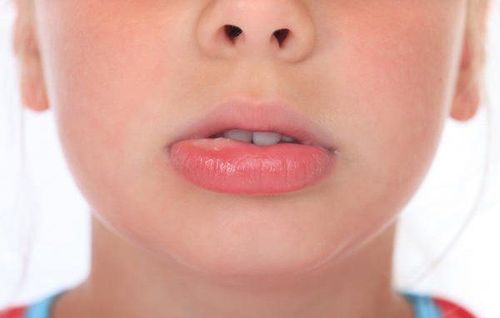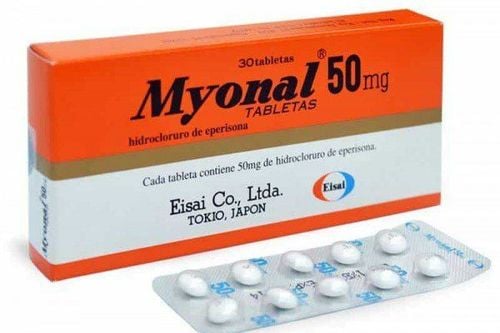This is an automatically translated article.
Mango is a nutritious food. However, in cases of mango allergy can lead to many dangerous conditions, especially anaphylaxis. The main symptoms of mango allergy are itching, hives, and swelling of the mouth when exposed to mangoes. This article helps provide some information about mango allergy.1. What is a food allergy?
Food allergies are very common and can affect almost everyone at some point in their lives. These include fruit, some with a high predisposition to oral allergy syndrome (OAS), a cross-reactivity between certain types of pollen and fruit that the body recognizes as the same.
One fruit that stands out for its allergenic potential is the mango (Mangifera indica). The national fruit of India, Pakistan and the Philippines, mangoes are grown on trees belonging to the cashew family Anacardiaceae. This is the same plant family that includes poison oak, poison ivy, and poison ivy.
This difference can not only make eating mango difficult for some people, but it can also be extremely dangerous at times.
2. Mango Allergy and Oral Allergy Syndrome
Oral allergy syndrome is usually an uncomplicated form of allergy that occurs almost immediately after eating a piece of fresh fruit and usually resolves without treatment within minutes.
OAS occurs as a result of similarities in the proteins found in mango with those found in pollen (usually birch pollen or mugwort pollen). These proteins are considered foreign antigens to the body. So when exposed, very quickly your body will react to fight these proteins. This causes the symptoms of an allergy and is more severe than anaphylaxis.
Oddly enough, you're allergic to tree sap which can also sometimes cause OAS symptoms from eating mangoes, a condition known as resinous fruit syndrome.
The diagnosis of OAS is usually made with a skin test to confirm whether there is a cross-reactivity between the mango and commonly involved allergens.
OAS is not usually considered a serious condition because saliva in a person's mouth can usually break down allergens fairly quickly. Therefore, any reaction is usually limited to the mouth and/or lips.
However, because the risk of a more serious reaction is relatively small, people with a mango allergy should avoid all live forms of the fruit. Cooked fruit rarely causes problems.

Hội chứng dị ứng miệng
3. Mango allergy can cause contact dermatitis
Another type of reaction that can occur from eating mango is called contact dermatitis , This is especially due to a substance found in plants of the Anacardiaceae family called urushiol.
Urushiol is a rash derived from poison ivy, poison oak, and poison sumac.
In mangoes, urushiol is found in high concentrations in the peel and the fruit just below the peel. In most people, exposure to urushiol will cause an allergic skin reaction. With mango, an allergy may not be as common as poison oak or poison ivy, but in some cases it can be just as severe.
This reaction, like poison oak rash, usually occurs on the face within hours of eating the fruit and can last for several days. The rash will appear as small, itchy blisters that can sometimes water.
While this type of mango allergy is not particularly dangerous or life-threatening, it can be uncomfortable and annoying. Treatment, as needed, will include topical or oral corticosteroids, depending on the severity of symptoms.
Diagnosis can be made based on the appearance of the rash. Testing is usually not required. If the reaction is particularly severe, a patch test can be used to confirm whether the mango is indeed the cause of the rash.
4. Mango allergy can cause anaphylaxis
In rare cases, a serious allergic reaction can be caused by eating mangoes. Called anaphylaxis, the reaction usually occurs within minutes of ingesting the fruit and can include:
Shortness of breath Wheezing Hives Facial swelling Tight throat Nausea Vomiting Abdominal pain Chest tightness Diarrhea Dizziness Fainting Heart palpitations Feeling like dying In some cases, the person's condition can deteriorate rapidly and lead to coma, shock, cardiac or respiratory arrest, even death death.
Where a person experiences a sudden, severe reaction to mangoes should seek emergency care.
People who have experienced severe allergic symptoms after eating cashews or pistachios should also avoid mangoes due to possible cross-reactivity. Persons at risk for anaphylaxis should always carry injectable epinephrine (such as an EpiPen) in case of accidental exposure to mango or any cross-reactive substance.

Dị ứng xoài có thể gây nên sốc phản vệ
Please dial HOTLINE for more information or register for an appointment HERE. Download MyVinmec app to make appointments faster and to manage your bookings easily.
Reference source: verywellhealth.com












